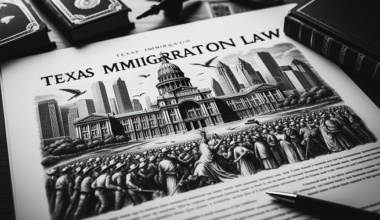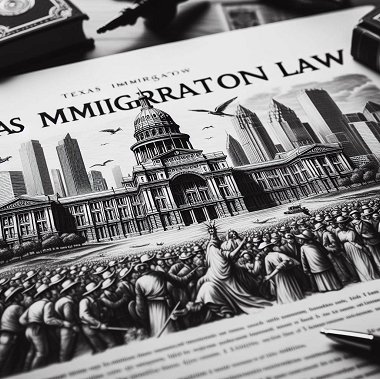Florida, with its sun-drenched beaches and vibrant culture, is a melting pot of diversity. But beneath the palm trees lies a complex interplay of immigration laws that intersect with our healthcare system. Senate Bill 1718 (SB 1718), signed into law by Governor Ron DeSantis, has sent ripples through hospitals across the state. As we step into the corridors of care, let’s explore how Florida’s immigration legislation impacts both patients and the compassionate souls who heal them.
The Hospital Dilemma: SB 1718 Unveiled
SB 1718, enacted in July, casts a spotlight on hospitals that accept Medicaid. What does it entail?
- The Immigration Inquiry: Hospitals now face a delicate task. Before admitting patients, they must inquire about immigration status. Are you a U.S. citizen? Are you lawfully present? These questions echo through sterile hallways, raising ethical concerns.
- Fear and Healthcare: For undocumented immigrants, seeking medical attention becomes a high-stakes gamble. Fear of deportation looms large. Delayed care, untreated illnesses—these are the hidden costs of SB 1718.
- Compliance vs. Compassion: Hospitals grapple with a dual mandate. On one hand, they must comply with the law. On the other, they strive to uphold their sacred duty: healing the sick, regardless of borders.
Silvia’s Story: A Daughter’s Anguish
Silvia Ruiz, a Florida resident under the Deferred Action for Childhood Arrivals (DACA) program, knows this struggle intimately. Her father, Valente, an undocumented immigrant from Mexico, faced a cruel choice. When COVID-19 struck, he hesitated to seek medical care. Fear gnawed at him—the fear of revealing his status, the fear of being turned away.
Valente’s lungs scarred from overwork, he fought for breath in a hospital room. His daughter, Silvia, watched helplessly. The oxygen mask, the ventilator—it wasn’t enough. Valente’s laughter, once robust, faded into labored gasps. In May 2021, he left behind a grieving family, including three young children born on Florida soil.
The Ethical Tightrope
Hospitals grapple with a moral tightrope. SB 1718 forces them to balance legal compliance with compassion. The Hippocratic Oath clashes with bureaucratic checkboxes. Doctors, nurses, and administrators tread carefully, knowing that every decision affects lives beyond the hospital walls.
- Writing: If you have a piece of writing, I can help you develop your ideas further. This could involve adding details, examples, or explanations. I can also help you explore different perspectives or arguments related to your topic.
- Storytelling: If you have a story idea, I can help you flesh it out by creating a more detailed plot, developing characters, and adding vivid descriptions of the setting and events.
- Information: If you’re looking for more information on a topic, I can provide you with additional facts, statistics, or historical context. I can also point you towards relevant articles, websites, or videos.
Just let me know what you’d like to make longer, and I’ll use my knowledge and abilities to help you achieve that!
Florida, with its sun-drenched beaches and vibrant culture, is a melting pot of diversity. But beneath the palm trees lies a complex interplay of immigration laws that intersect with our healthcare system. Senate Bill 1718 (SB 1718), signed into law by Governor Ron DeSantis, has sent ripples through hospitals across the state. As we step into the corridors of care, let’s explore how Florida’s immigration legislation impacts both patients and the compassionate souls who heal them.
The Hospital Dilemma: SB 1718 Unveiled
Enacted in July, SB 1718 casts a long shadow on hospitals that accept Medicaid, a program that provides health insurance for low-income individuals and families. The legislation mandates these hospitals to inquire about a patient’s immigration status before admitting them. This seemingly simple question, “Are you a U.S. citizen? Are you lawfully present?” carries a heavy weight. It echoes through sterile hallways, raising a multitude of ethical concerns.
Fear and Healthcare: A Chilling Effect
For undocumented immigrants, seeking medical attention becomes a high-stakes gamble under SB 1718. The fear of deportation looms large, creating a chilling effect that deters them from seeking preventive care or treatment for illnesses. This can have devastating consequences. Delayed care often leads to untreated illnesses that progress into more serious conditions, requiring more expensive interventions later. These hidden costs ultimately strain the healthcare system and endanger public health.
Compliance vs. Compassion: A Tightrope Walk
Hospitals are now caught in a moral tightrope walk. On one hand, they must comply with the law and risk facing penalties for non-compliance. On the other hand, they strive to uphold their sacred duty: healing the sick, regardless of borders or legal status. This ethical conflict creates a heavy burden for doctors, nurses, and administrators. Every decision they make can have life-altering consequences for the patients in their care.
Silvia’s Story: A Daughter’s Anguish
Silvia Ruiz, a Florida resident under the Deferred Action for Childhood Arrivals (DACA) program, knows this struggle intimately. Her father, Valente, an undocumented immigrant from Mexico, faced a cruel choice when he contracted COVID-19. Weakened and struggling to breathe, he hesitated to seek medical care. Fear gnawed at him—the fear of revealing his immigration status, the fear of being turned away at the very place where he needed help most.
By the time Valente finally received treatment, the damage was extensive. His lungs, scarred from years of hard labor in the Florida fields, could no longer sustain him. Silvia watched helplessly as her once vibrant father, whose laughter used to fill their home, faded away behind an oxygen mask and then a ventilator. In May 2021, Valente succumbed to the virus, leaving behind a grieving family, including three young children born American citizens on Florida soil. Silvia’s story is a stark reminder of the human cost of policies that prioritize immigration enforcement over public health.
Remember, the key is to add substance and depth while staying relevant to the core topic.
Conclusion: Healing Beyond Borders
As the sun sets over Florida’s coastline, hospitals wrestle with their dual roles. They are gatekeepers of health and guardians of humanity. SB 1718 may be the law, but compassion transcends statutes. In the quiet of hospital rooms, where lives hang in the balance, we find the heart of healing—a heart that beats for all, regardless of origin.





